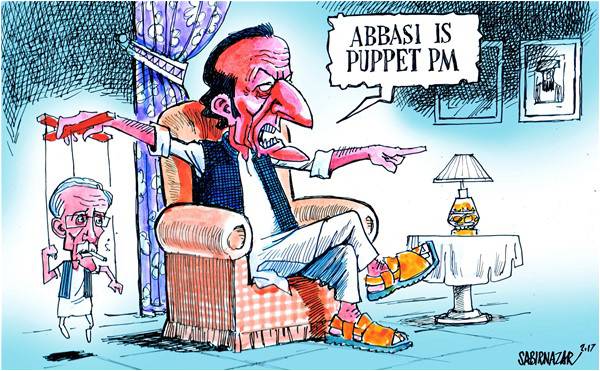
Much ado about nothing
Sir,
On October 23, for over five hours there was live drama telecast about Sharjeel Memon, a former Sindh minister and associate of Asif Zardari. He was accused of corruption worth approximately Rs6 billion and his bail was rejected by the high court. It was requested that he either be given extended bail or be sent on judicial remand and not be handed over to National Accountability Bureau for further interrogation.
He was finally picked by NAB with the help of the police and Rangers after which he had to leave the premises of the Sindh High Court after office hours. After all this much ado about nothing, he spent the night at the NAB premises and the next day was presented before a NAB court, which granted his wish to be sent on judicial remand, where we all know he will be treated like a VIP.
Media reports and investigations by other agencies have already revealed that even criminals involved in heinous crimes are not only living in luxurious conditions, but are also still operating from Karachi Central Jail.
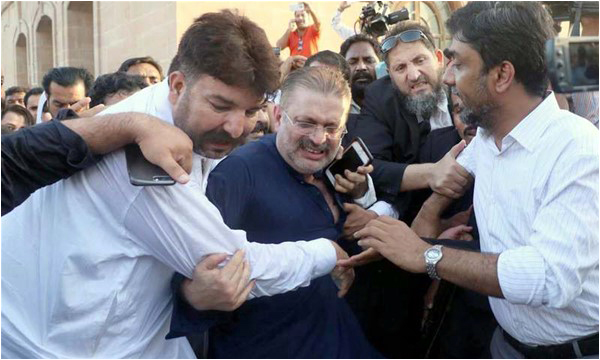
NAB was created to punish criminals but has gained notoriety through friendly prosecution and boosting its own revenues generated through plea bargains. It continues to give a clean chit to the corrupt, allowing them to still be eligible to hold elected or public office, where they continue to mint millions, driving this country into bankruptcy. There is not a single high-profile corrupt individual who has been punished appropriately and no looted money has ever been recovered. If this culture of impunity continues, then nobody can save this country. No wonder once-profitable state institutions such as PIA, PSM, National Bank of Pakistan, PSO, NICL etc have been reduced to white elephants.
Ali Malik Tariq,
Lahore.
Understanding labels
Sir,
Empowerment is generally understood to be a process enabling a person to be capable of independent thinking, make aware choices, participate in and have the power to make decisions and transform their decisions into action.
The term “empowerment” has been surrounded by hype within the traditional and cultural value system in Pakistan where it is vaunted as a “modern” phenomena. We saw that once the development sector started using this term liberally, women, for example, started to say they were empowered, even though there was no real substance to it. They felt empowered without the resources.
Sustainable Development Goal 5 guarantees economic independence for women which will socially empower them. But this is not applicable to women in many developing countries. The label used by multinational development agencies only profits organizations not individuals.
The adaptation of the term “empowerment” by mainstream development institutions begun in the mid-1990s. Cornwall and Brock (2005) point out that empowerment holds a prominent position in feminist scholarship and started to be used by the World Bank. What feminists posit about empowerment is used differently in development discourse; it has disturbed local cultural values and women’s self-esteem in a community.
Two type of practices are highlighted in literature: one is by policy makers and the second is by grassroots organizations i.e. NGOs. In her book, Maria Mies says that women in rural areas of Bangladesh do not need empowerment from say, the White House. She indicates that those women are strong and what they really want is to get rid of oppressors e.g. TNCs, the World Bank, IMF, capitalist patriarchal men and national bureaucracies.
There are always grassroots organizations working to empower women in rural and urban settlements. I argue that grassroots level seminars disturb cultures. For instance, an NGO holds workshops to empower women in semi-urban settlements by teaching them about their rights in household decision-making and participating in the public sector, raising their voice against domestic violence and perhaps challenging the power of man.
Let us say, women are empowered and understand inequality and discrimination which they face. What will happen if she rises her voice against male family members in her household or registers a case against them? When she stands against the norms of a household with her ‘empowerment’ but without any resources or support to face the consequences, she will be in a worse situation. She could face a backlash and sometimes more violence and oppression.
Empowerment emerged as a struggle of feminists around the world as they felt the need to include women in mainstream development. What was perhaps needed was also a discussion of networks that support empowerment.
Kashif Rustamani
Department of Development Studies, PIDE Islamabad.
DHA crime
Sir,
My mother was robbed at the signal of Khayaban-e-Shahbaz and Khayaban-e-Hafiz in Karachi at around 7:30pm on Thursday, Nov 23. A man on a motorcycle was robbing cars stuck in traffic there. [Another resident adds] that their daughter and son-in-law were robbed at gunpoint at Khayaban-e-Ittehad.
The good news is that after receiving complaints of street crime in parts of DHA, District South police and the CPLC team have deployed extra force. All those who have been victims of such incidents are requested to report it to them.
SM Asad,
Via Facebook.
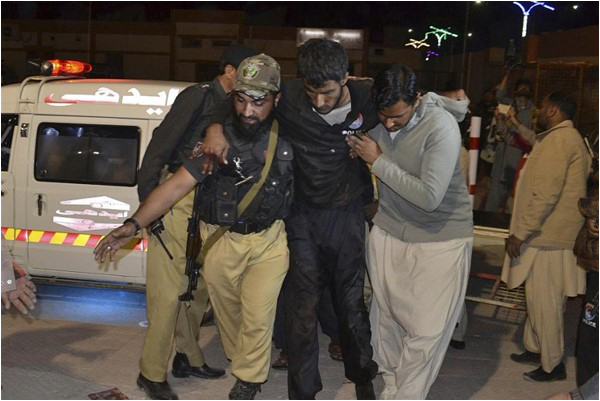
Quetta attack anniversary
Sir,
A day which will never be forgotten easily is October 24, 2016 when at training college center in Quetta, Balochistan was attacked. Sixty-one Baloch police were killed and more than 165 people were injured. The Islamic State of Iraq and the Levant – Khorasan Province claimed responsibility for the attack and Pakistan-based Lashkar-e-Jhangvi claimed to have collaborated with them. The people of Balochistan still live in fear of such attacks. The authorities are unable to tackle this problem.
Adnan Dost,
Khairabad.
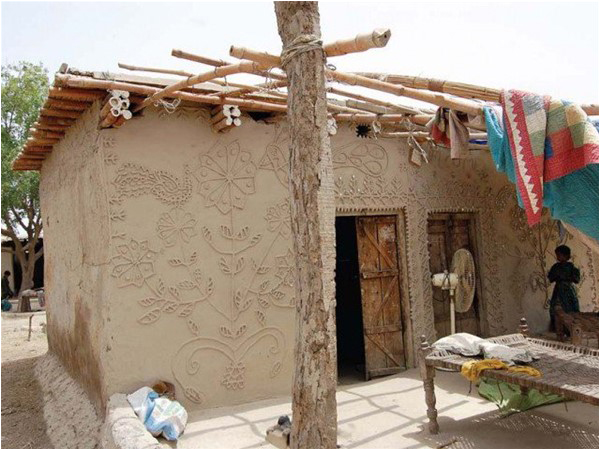
Dolmen mall Haidery
Sir,
Dolmen Mall Haidery closes at 11pm after which all the lights in front of the building are shut. The lights of Block C on the main road are also shut as are the ones on the service lane. There is a complete blackout. This raises the risk of crime. Please do not shut off the street lights in this area.
Khawaja,
Karachi.
Punjab cleanliness
Sir,
The tremendous efforts of the Punjab government in the form of ‘Khadim-e-Punjab Saaf Dehat Program’ must be acknowledged. It intends to make villages in the Punjab litter free in the years to come. Having said that, this initiative could have been taken earlier in order to provide effective solid waste management services in rural areas across the Punjab where they hardly exist.
The objectives of this program are to improve the quality of life with the provision of
efficient waste collection services. This package is for almost 3,281 rural Union Councils in nine divisions of the province where an estimated 20,000 tons of municipal solid waste would be collected and transported to designated dumping sites daily.
This effort will hopefully see changes in the environment and health of the people and significantly affect their urge to migrate to urban areas.
Haider Ali,
Lahore.
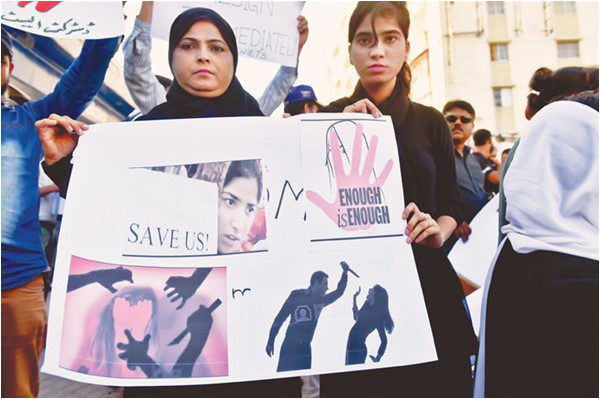
Of stabbers
Sir,
It has been a month now since the first stabbing attack on a woman in Karachi made headlines. While it may have startled a few people, by and large women were still going about their business, except in certain small pockets where the fear was high.
It makes me think that we are a strong nation. Women continue to be subjected to violence but they also continue to work, study, run their homes and families and engage in the public sphere even though there is often a persistent threat to their safety.
Women are constantly attacked, beaten, raped and harassed in Pakistan but they have not necessarily allowed this to cow them or retreated from the gains made to secure their rights. Take the right to freely marry who they want to. You will find our newspapers crammed with news of honour killings but you will also see news of young women eloping to marry of their own free will or in court.
It is us, who forcibly marry off five year old girls to the grey-haired old men and then go home to get a good night’s sleep. But if we are asked about the man whose daughter has eloped we say that a compensatory marriage needs to be arranged with the boy’s younger sister to avenge honour. This is what we call justice. But what about child marriage? Would we agree to this watta satta in a child marriage case?
To us, the real reason rape takes place is that women go out in public without their male guardians. To us, the reason for harassment is the choice of clothing. For us, the girls were being stabbed because they went to the market. We never think for a second that these men are simply murderers, rapists and attackers who have no good reason to ever commit such crimes. We need to start focusing on the perpetrator, not the victim.
Manesh Kumar,
Via email.
Awaran education
Sir,
The education system in Awaran is possibly the worst in Pakistan. I know this as I am a resident and a victim too. The people of Awaran have great talent and many students have great potential but they are extremely stressed about their future. Many of them have been forced to leave Awaran because of the living conditions and the lack of facilities. No is concept of libraries here. You have to travel long distances to even gain access to a government office. There is a college but it does not provide quality education. Many of us have migrated to different cities, especially Turbat and Quetta in search of an education. I request the DEO to kindly visit Awaran and survey the area and assess how he can help. We are also Pakistanis.
Najeeb Noor,
Awaran.
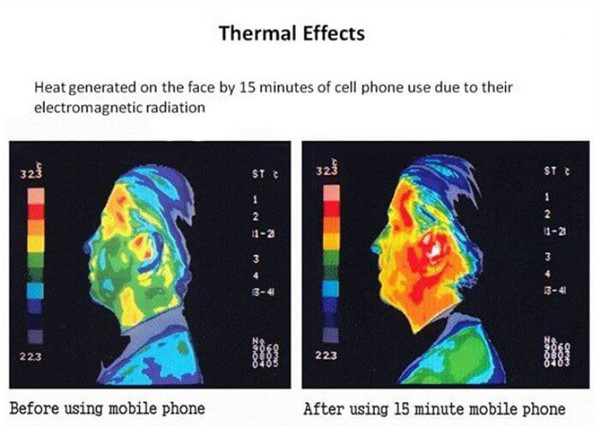
Mobile phones
Sir,
A cell phone is just a device that connects us to friends and relatives but for young people today it is seen as something that “completes” them. Mobile phones have become our better halves without which we feel “incomplete”.
All over the world young people are seen as the future. If we were to look at Pakistan’s future, we would see that it is addicted to mobile phones.
I am not saying that we should not use them; I am saying that at least we should not let them control us. Due to these devices we are unable to find time for ourselves, families and goals in life.
Chronic use has been associated with health. Scientists have found that radiation from cell phones can be harmful. Aside from this, the constant use of the screens affects our eyes, posture and hence backs, and ability to sleep.
To protect ourselves, we should make some changes. We should not use mobile phones unnecessarily. As their blue screen light directly affects our eyesight and brain cells we should avoid them. We should never use a mobile phone while it is charging as that is when they emit 10 times more radiation.
We should not give children cell phones as their brains and behaviour can be affected. When you go to bed, put the mobile phone away.
Maham Fazal,
Via email.
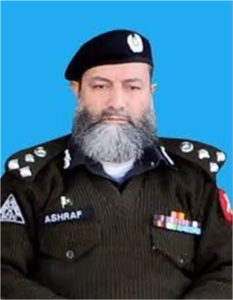
Peshawar’s brave
Sir,
Once again, Peshawar was subjected to another round of trauma, on November 24, when a suicide bomber attacked one of the senior most officers in Khyber Pakhtunkhwa, Additional IG Police Ashraf Noor, and his gunman while they were on their way to work.
One was reminded of the case of Inspector General of Police Safwat Ghayur, who was killed in 2010 in a suicide attack by the Pakistani Taliban. He was also a senior officer who had served as commandant of the Frontier Constabulary and was revered as someone who had led the fight against terrorism.
Then there was DIG Malik Muhammad Saad Khan who was killed while on duty reviewing security arrangements during a Shia procession during Muharram in 2007. He was one-star rank senior police officer, an engineer, and had served as Chief Capital City Police Officer (CCPO) of Peshawar. He was in charge of security in Peshawar and was known for his honesty, hard work and dedication.
The list is a long one of the brave men of KP who have, either as police officers, soldiers, paramilitary jawans, or even as members of peace committees and lashkars, fought extremists and terrorists in their midst. In fact, it seems that it has been a policy of the terrorist groups to try to decimate the men who fight against them. The best tactic to spread fear was to target senior officers.
One wonders how long this fight will go on and how many more people will be terrorised. One wonders if an entire generation of children are growing up in the shadow of fear. They have not known normal times. They have only seen a city full of check posts, bunkers and sandbags. One wonders when our policymakers and when the establishment will deem it fit to end this misery.
Malik Hussain,
Peshawar.

